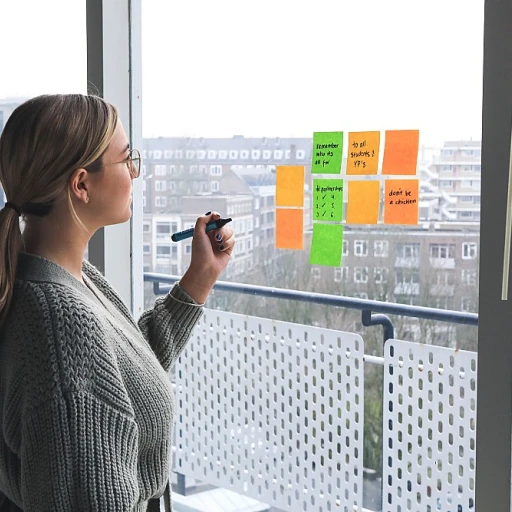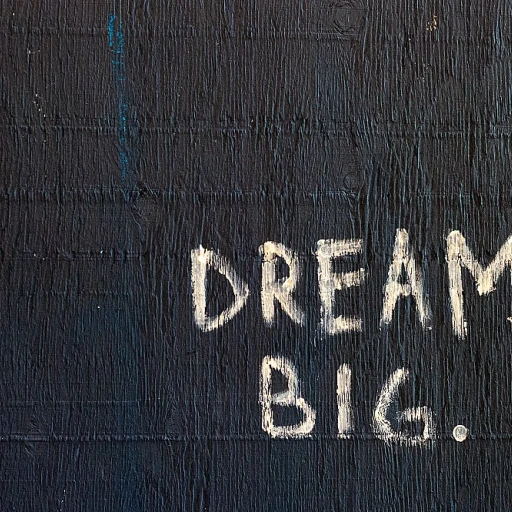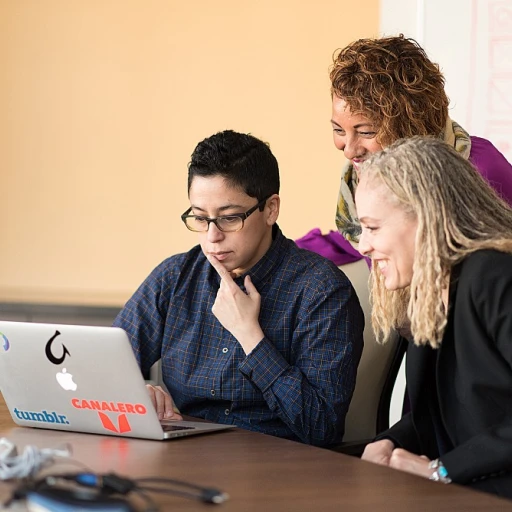
Understanding the Importance of Diversity in Employer Branding
The Vital Role of Diversity in Shaping Employer Brand
In today's rapidly-evolving work environment, diversity plays a pivotal role in shaping the employer brand. Embracing diversity and inclusion initiatives is not only about compliance or meeting quotas but fundamentally about fostering an inclusive workplace where every employee feels valued and respected. A company's dedication to diversity equity and inclusion (DEI) significantly influences its reputation and success in attracting diverse talent. A well-rounded understanding of this importance can enhance human resources practices, helping to build a work environment that champions equitable opportunities for every member of the team. This commitment ultimately supports enhanced innovation and decision-making. Diverse teams bring varied perspectives, driving creativity, problem-solving, and ensuring a more comprehensive approach to business challenges. By prioritizing inclusion efforts, companies can create a culture of open dialogue, encouraging team members to share their insights and experiences. This not only enriches the work environment but also strengthens the organization's competitive edge in the job market. The focus, thus, shifts from simply hiring diverse individuals to building teams that genuinely reflect the multifaceted society we live in. Furthermore, by developing inclusive interview practices, companies can ensure that underrepresented groups have an equitable platform during the hiring process. This is key to crafting diversity interview questions that gauge candidates' readiness to thrive in an inclusive workplace while aligning with the company's values. To explore more insights on how diversity impacts employer branding, check out unlocking the potential of B2B growth marketing in employer branding.Key Elements of Effective Diversity Interview Questions
Crafting Questions that Drive Meaningful Conversations
Effective diversity interview questions are designed to foster open dialogue and reveal an applicant's genuine understanding of diversity, equity, and inclusion principles. These questions aim to assess a candidate's readiness to contribute positively to a diverse team and create an inclusive work environment.
To craft such questions, consider focusing on these key elements:
- Assessing Understanding: Dive into questions that probe the candidate's views on diversity and its importance in the workplace. For example, "How do you define diversity, and why is it important in today's job environment?" This can help gauge their foundational knowledge and openness to inclusion initiatives.
- Exploration of Past Experiences: Inquire about the candidates' previous work with underrepresented groups, prompting them to offer specific examples. For instance, "Can you share an experience where you had to advocate for equity inclusion in a team setting?" This question allows candidates to demonstrate their hands-on involvement and capability in fostering an inclusive culture.
- Scenario-Based Questions: Use example scenarios to understand the candidate's decision-making process when faced with diversity challenges. A practical question could be, "How would you manage a conflict arising from diversity misunderstandings within your team members?" It offers insights into their problem-solving skills while ensuring a respectful and inclusive dialogue.
- Commitment to Improvement: Encourage candidates to share ideas that promote an inclusive workplace. Asking "What steps would you take to enhance diversity inclusion within our company?" might reveal their strategic thinking aligned with the company's inclusion efforts.
By embedding these elements and crafting thoughtful diversity interview questions, organizations not only improve their hiring practices but also bolster their employer branding by showcasing a commitment to diversity and inclusion. For more insights on innovative approaches to labor solutions that can enhance your diversity initiatives, explore this additional resource.
Common Pitfalls in Diversity Interview Questions
Avoiding Common Missteps in Crafting Diversity Questions
Crafting diversity interview questions with the aim of building an inclusive workplace is not without its challenges. It's important for human resources teams to be aware of the common pitfalls that can occur in this process. By steering clear of these missteps, companies enhance their environment to better support underrepresented groups and ensure diversity, equity inclusion practices are authentically applied. Firstly, questions should be formulated to avoid tokenism. Many times, efforts towards diversity inclusion focus on adding a diverse candidate or two to the team without an understanding of their experiences or requirements. This can lead to feelings of being undervalued. Instead, interview questions should demonstrate a genuine interest in the candidate’s perspectives and life experiences, fostering open dialogue about how their unique background can contribute to the team. Second, interview questions should steer clear of unlawful or unethical inquiries. Questions rooted in stereotypes should be avoided entirely. For example, asking questions that assume certain traits or capabilities based on someone's race, gender, or any other attribute can perpetuate unconscious bias and create an uncomfortable work environment for candidates. While tailoring questions is key, it’s important to remember to probe for experiences and values rather than specific personal information. This helps ensure the focus remains on what the candidate can bring to the company's inclusive initiatives. Questions should also be designed to gauge how a candidate will contribute to the company’s diversity equity and inclusion efforts and how they'll engage with team members from diverse backgrounds. Opt for queries that allow candidates to provide example answers showcasing their ability to contribute to an inclusive workplace culture. In essence, companies should aim to craft questions that inspire honest and introspective answers, paving the way to diversity-conscious decision making and a well-rounded understanding of diversity. For organizations looking to enhance their human resources strategies with AI tools, it’s worth exploring how AI can assist in refining interview questions to minimize bias and promote a more inclusive hiring process. Explore AI tools for HR.Examples of Thoughtful Diversity Interview Questions
Examples of Crafting Inclusive and Thoughtful Interview Questions
Designing interview questions that fuel genuine understanding is crucial when building a diverse work environment. For teams seeking to reflect a variety of human experiences, it’s essential to craft questions that allow candidates to showcase how their unique backgrounds contribute to an inclusive workplace. One effective approach is to create open-ended questions that invite candidates to share examples from their past. Such questions can illuminate how a candidate has previously engaged with diverse groups or demonstrated inclusive practices. Here are some examples:- Can you provide an example of a time when you worked with team members from diverse backgrounds? How did you ensure that all voices were heard?
- Describe a situation where you advocated for diversity and inclusion at work. How did you handle any challenges?
- How do you approach decision-making to foster equity and inclusion in a team or project?
- Share an example of how you've contributed to creating an inclusive environment in a previous job.
Training Interviewers for Diversity-Focused Interviews
Empowering Interviewers with Diversity Sensitivity
Training interviewers is crucial in promoting an inclusive workplace and ensuring that diversity interview practices are effectively implemented. Human resources teams must focus on equipping interviewers with the skills necessary to conduct interviews that reflect the company's commitment to diversity, equity, and inclusion. Training programs should address the following areas:- Understanding Unconscious Bias: Interviewers need to recognize and mitigate their own biases, as these may unknowingly influence decision-making during interviews. By understanding unconscious bias, interviewers can more objectively evaluate candidates’ answers.
- Crafting Thoughtful Questions: It's essential to develop questions that prompt candidates to discuss their experiences with diverse teams and inclusive environments. This encourages an open dialogue about the company's diversity inclusion efforts.
- Valuing Diverse Perspectives: Interviewers must be trained to appreciate and evaluate diverse answers, seeing them as a potential asset to the company. This approach can foster a more inclusive workplace where individuals from underrepresented groups feel valued and respected.
- Promoting Open Dialogue: Creating an environment where candidates feel comfortable sharing their ideas and experiences is key. Interviewers should be empowered to create a supportive atmosphere that promotes open discussions about diversity and inclusion initiatives.
Measuring the Impact of Diversity Interview Questions on Employer Branding
Evaluating the Results and Enhancing Strategies
Understanding the real impact of diversity interview questions on employer branding is critical for fostering an inclusive work environment. Measuring this impact allows companies to adjust their hiring practices and ensure they're promoting an inclusive workplace where all employees feel valued and respected. Here are some key methods to evaluate and enhance the effectiveness of diversity-focused interviews within your company:- Feedback from Candidates and Interviewers: Gathering feedback from both candidates and interviewers can provide valuable insights into how diversity questions are perceived and whether they contribute to a more inclusive interview process. Open dialogue with interviewers about their experiences can highlight areas that need improvement.
- Analyze Hiring Patterns: Assess the impact of diversity interview questions on hiring decisions by analyzing patterns in your recruitment data. Are you seeing an increase in hiring from underrepresented groups? This data-driven approach helps identify the effectiveness of your diversity inclusion efforts.
- Survey and Monitor Employee Morale: Post-hire, it's crucial to monitor whether new employees feel included and respected within the team. Conduct surveys to understand how new hires perceive the inclusivity of your work environment, and use this information to adjust your onboarding processes and team dynamics if needed.
- Review Retention Rates: A workplace that thrives on diversity and inclusion should see positive trends in employee retention rates. If a high turnover is observed among diverse hires, it may indicate that deeper changes are necessary in the workplace culture or inclusion initiatives.
- Benchmark Against Industry Practices: Compare your practices with industry standards to ensure diversity equity and unconscious bias efforts are on par with or leading in your sector. This comparative analysis can drive improvements and innovation in your diversity strategies.













